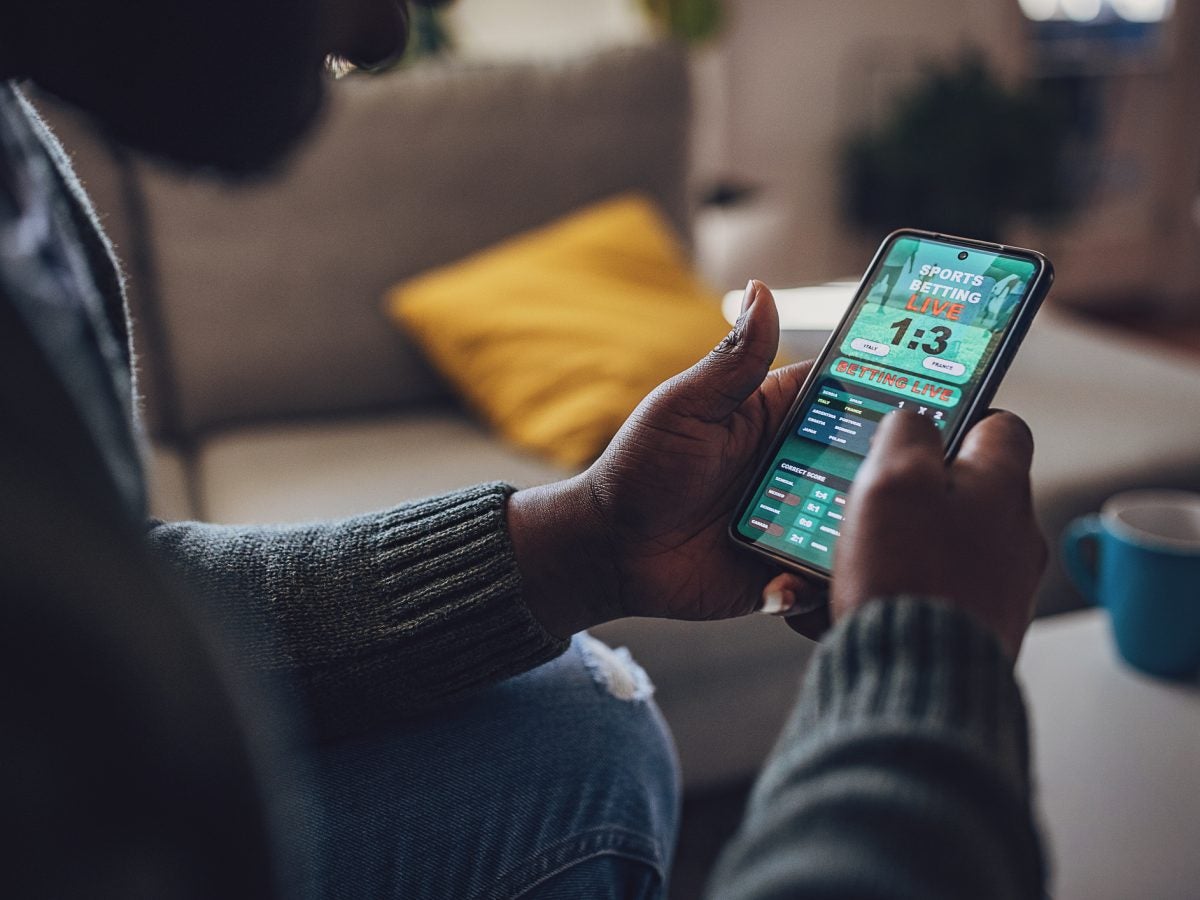
It’s no secret that the rush of placing a sports bet is often more thrilling than the slow burn of watching your stock portfolio grow. But what if I told you that more Americans are now spending their hard-earned money betting on sports than investing in the stock market?
As of 2024, data reveals a significant shift in financial habits, particularly among Gen Z and millennials. According to reports, these younger generations are gravitating towards the immediate gratification of sports betting, with over $220 billion being wagered since the practice was legalized.
This cultural shift is changing the way we think about financial risk-taking, and for Black Americans, it carries unique implications.
Sports betting has become a huge industry, especially as states across the U.S. have embraced its legalization. Mobile betting apps make it easier than ever to place wagers with just a few taps on your phone. With quick payouts and the adrenaline rush of winning, it’s no surprise that younger Americans—who thrive on instant results—are betting more on sports than ever before. Morning Brew reports that sports betting has even overtaken stock market investments for many young people.
For Black Americans, this trend might be even more significant. Historically, Black communities have faced barriers to entry in the stock market and traditional wealth-building opportunities. The rise of sports betting offers a more accessible—though risky—way to engage with the financial world. It’s fun, thrilling, and doesn’t require insider knowledge or complicated financial strategies. But while the short-term gains of sports betting are enticing, the long-term financial losses could be harmful, especially for communities already grappling with economic disparities.
One of the main reasons behind this surge in sports betting is the emotional engagement it offers. Unlike investing in stocks, which requires patience and careful planning, sports betting provides immediate feedback—win or lose. According to a Fortune report, more Americans are choosing to wager on sports rather than invest in stocks because it’s seen as more exciting, and betting apps have gamified the process to make it incredibly user-friendly.
Additionally, the cultural aspects of sports betting—such as its deep ties to popular sports leagues like the NFL and NBA, where Black athletes dominate—make it a familiar and enticing way for Black bettors to engage in a form of entertainment that also holds the promise of financial gain.
But for Black millennials and Gen Z, this shift could widen the wealth gap. Data indicates that gambling addiction is up 110% since sports betting became legal . These losses disproportionately affect those without robust financial safety nets, which makes the rise of betting over investing an issue worth examining.
For Black Americans, especially younger generations, this trend signals a broader issue around financial literacy and access. Betting might feel like an equalizer—everyone can participate, and anyone can win. But long-term wealth building often requires access to resources that have been historically denied to Black communities, such as education on stock market investments, real estate, and entrepreneurship. Without these tools, the short-term appeal of betting may overshadow more sustainable, long-term financial planning.
Efforts to educate Black communities about investing and long-term wealth creation are crucial to counteract the rise of betting culture. Programs like Earn Your Leisure and other financial literacy platforms aim to fill this gap, encouraging Black Americans to consider the stock market as a viable path to generational wealth .
While sports betting can be an entertaining way to engage with your favorite sports, it’s important to balance short-term excitement with long-term financial security. For Black Americans, especially young people, this means understanding the risks involved and finding ways to incorporate more stable financial investments into their portfolios. Betting may be fun, but investing in your future should be the ultimate win.





